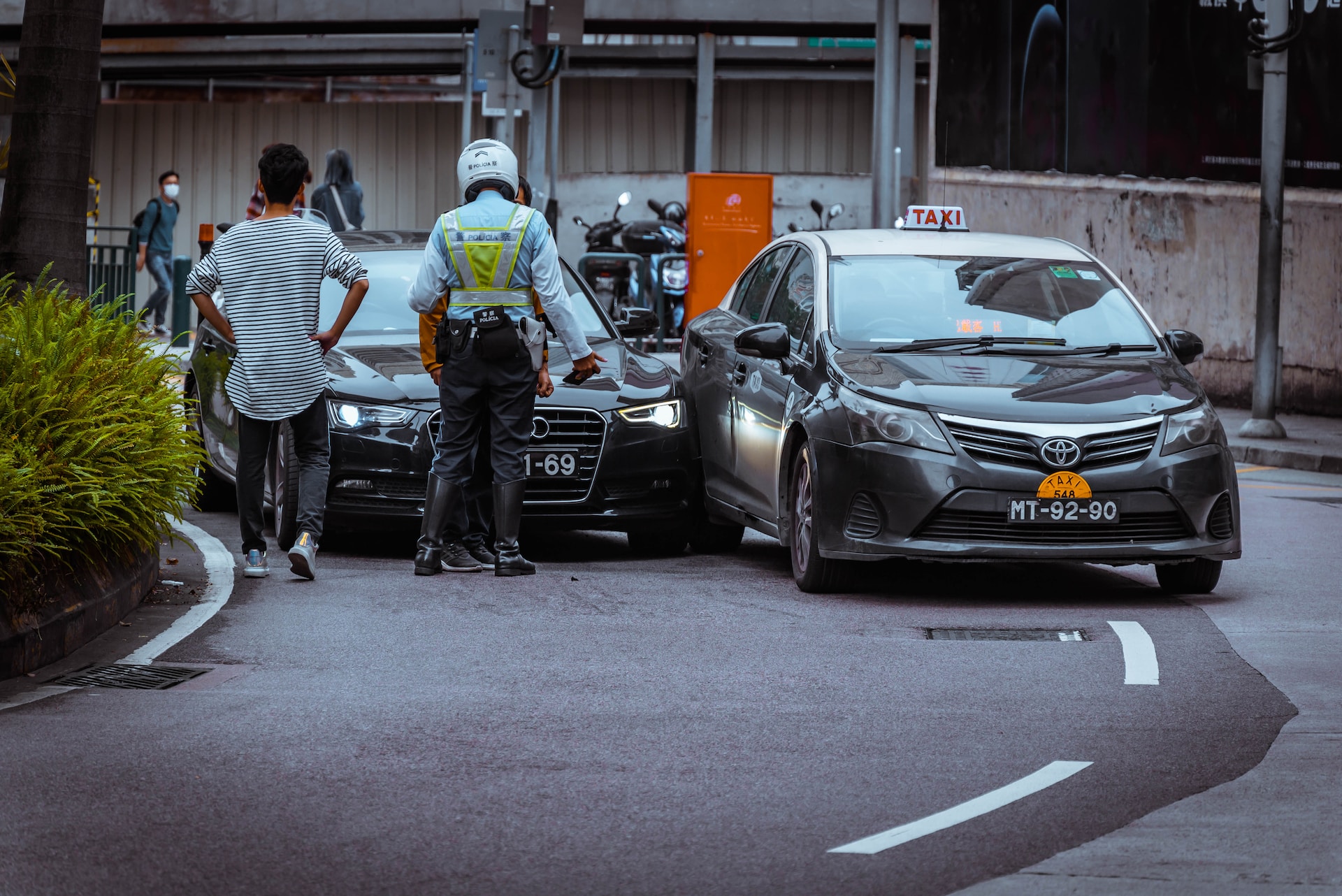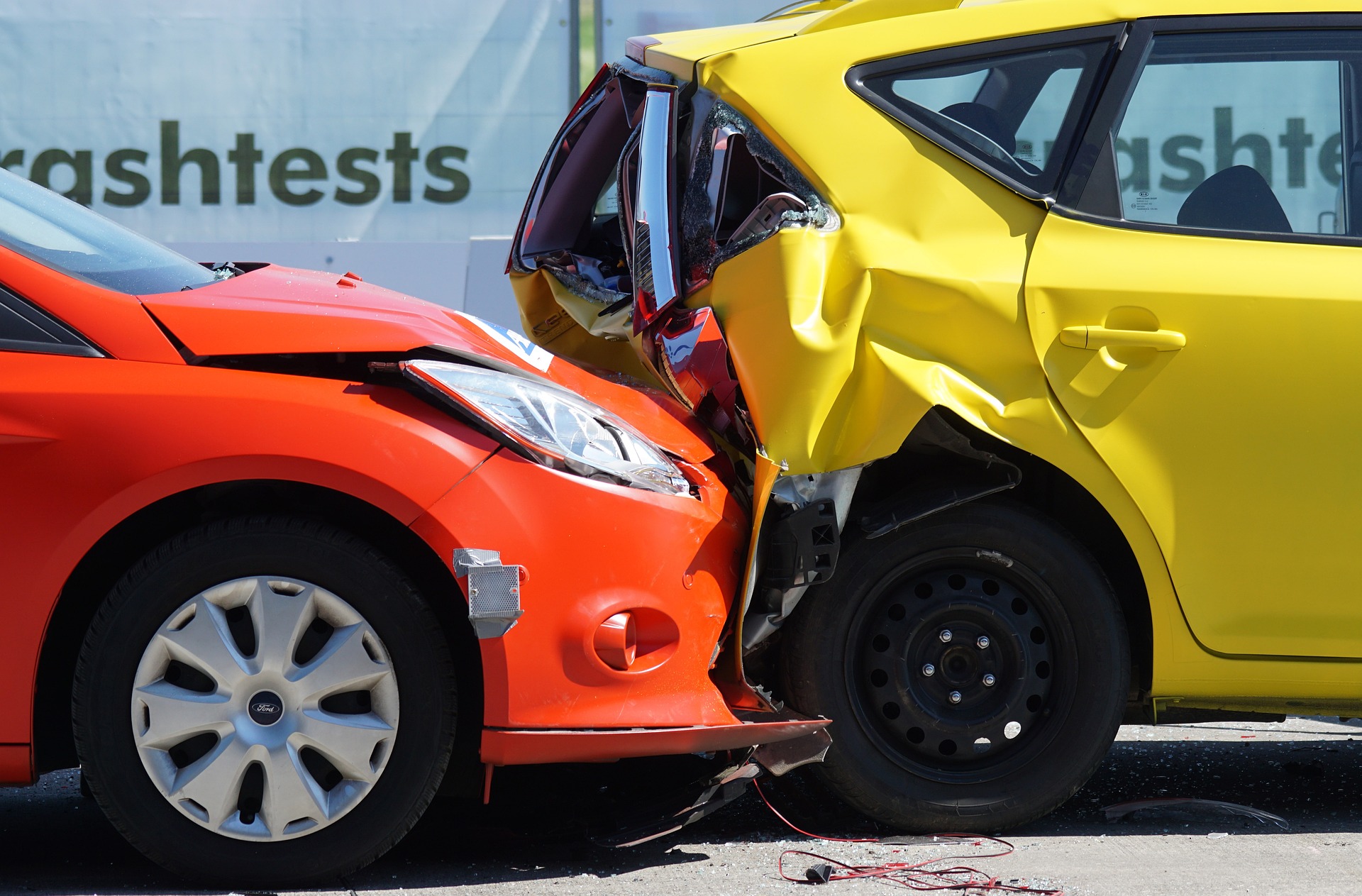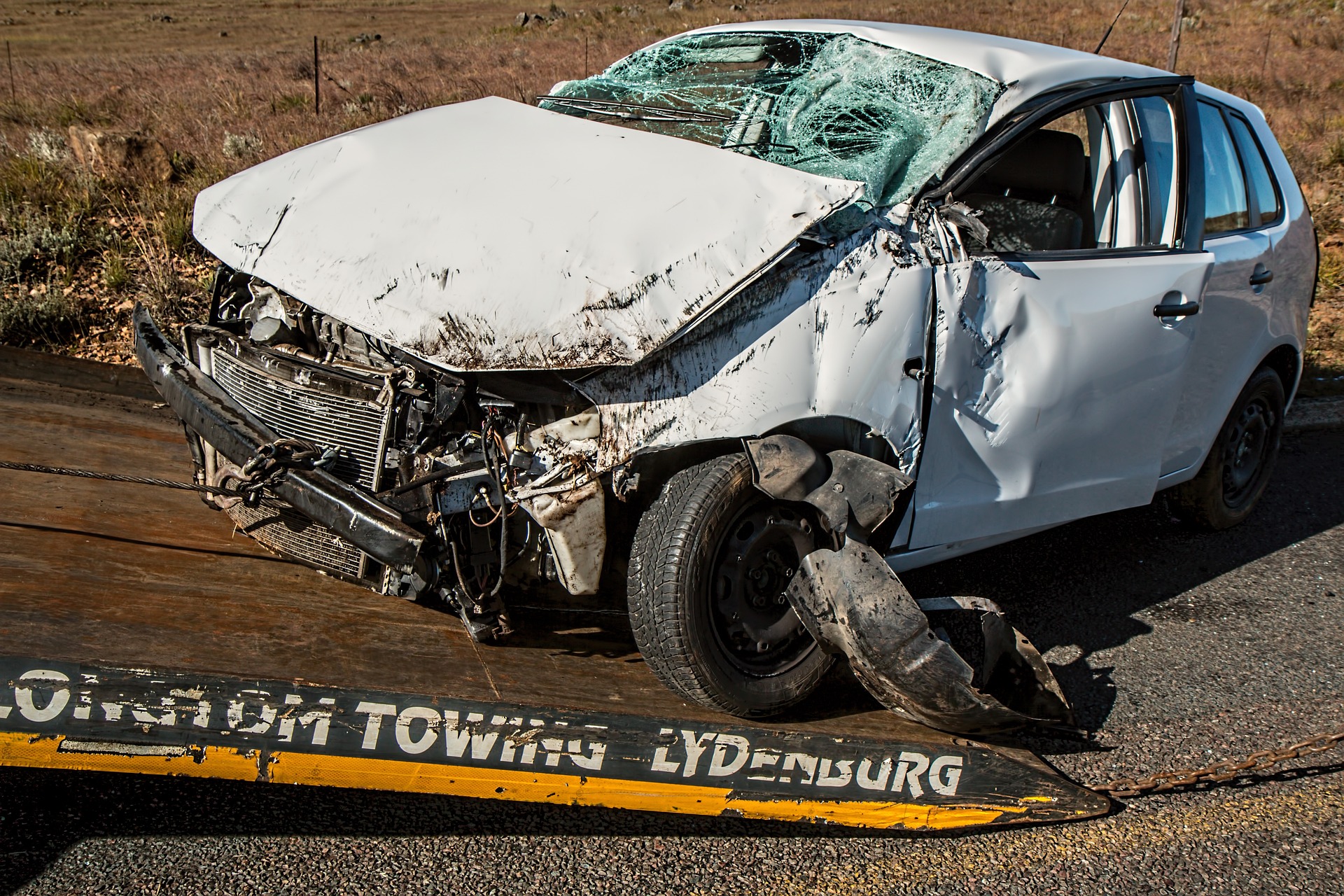Car accidents are a scary and stressful experience that can happen to anyone. According to the National Highway Traffic Safety Administration (NHTSA), there were over 5 million police-reported car accidents in 2020, resulting in 38,824 traffic-related deaths and 1.6 million injuries. The number of fatal accidents per mile driven increased by 21% year over year, the highest since 2007.
If you are involved in a car accident, you may feel overwhelmed, confused, and panicked. You may not know what to do, who to call, or what your rights are. You may also face medical bills, property damage, lost wages, and pain and suffering.
That’s why it’s important to be prepared and know what to do when you get in a car accident. This guide will help you understand the steps you need to take after a crash, how to deal with insurance companies, and how to get compensation for your losses.
1. Stay calm and check for injuries
The first thing you need to do after a car accident is to stay calm and check for injuries. If you or anyone else is hurt, call 911 immediately and request an ambulance. Do not move anyone who is seriously injured unless they are in danger of further harm.
If you are not seriously injured, try to move your vehicle out of traffic if possible. Turn on your hazard lights and use flares or cones to warn other drivers. If you cannot move your vehicle, stay inside with your seat belt on and wait for help.
2. Call the police and report the accident
The next thing you need to do is to call the police and report the accident. Even if the accident is minor, you should always call the police and get a police report. A police report is a document that records the details of the accident, such as the date, time, location, weather conditions, witnesses, injuries, and damages.
A police report can be very helpful when you file a claim with your insurance company or pursue a lawsuit against the other driver. It can also protect you from false claims or fraud by the other party.
When the police arrive, cooperate with them and answer their questions honestly. Do not admit fault or apologize for the accident, as this can be used against you later. Just stick to the facts and let the police determine who was at fault.
3. Exchange information with the other driver
Another important step after a car accident is to exchange information with the other driver. You should get their name, address, phone number, driver’s license number, license plate number, insurance company name, policy number, and contact information.
You should also get the same information from any passengers or witnesses involved in the accident. If possible, take pictures or videos of the scene, the vehicles, the damages, and any injuries. This can serve as evidence for your claim or lawsuit.
Do not argue or discuss the accident with the other driver or their insurance company. Do not accept any offers or sign any papers without consulting your lawyer first. The other party may try to persuade you to settle for less than you deserve or waive your rights.
4. Seek medical attention as soon as possible
Even if you feel fine after a car accident, you should still seek medical attention as soon as possible. Some injuries may not show up right away or may worsen over time. For example, whiplash, concussion, internal bleeding, or brain damage can have delayed or hidden symptoms.
Seeking medical attention can help you diagnose and treat your injuries early and prevent further complications. It can also help you document your injuries and link them to the accident. This can be crucial when you file a claim or lawsuit for compensation.
Make sure you follow your doctor’s advice and keep all your medical records and bills. You should also keep track of any medications, treatments, therapies, or assistive devices that you need because of your injuries.
5. Contact your insurance company and file a claim
After a car accident, you should contact your insurance company and file a claim as soon as possible. Depending on your state laws and your policy coverage, you may have different options for filing a claim.
Some states have no-fault insurance laws, which means that each driver’s insurance company pays for their own medical expenses and lost income, regardless of who caused the accident. This is done through personal injury protection (PIP) coverage, which is mandatory in no-fault states. PIP can also cover funeral expenses, household services, and survivor benefits.
Some states have pure no-fault laws, which means that drivers cannot sue each other for pain and suffering or other non-economic damages, unless their injuries meet a certain threshold of severity or cost. Other states have choice no-fault laws, which means that drivers can choose between a no-fault policy or a traditional policy that allows them to sue or be sued for any damages.
The main benefit of no-fault insurance is that it can speed up the claims process and reduce the number of lawsuits. However, no-fault insurance can also be more expensive than liability insurance and limit your legal rights.
Some examples of no-fault states are Florida, Hawaii, Kansas, Kentucky, Massachusetts, Michigan, Minnesota, New Jersey, New York, North Dakota, Pennsylvania, Utah, and Puerto Rico.
Accidents in at-fault states
In an at-fault state, also called a tort state, a driver who causes a car accident is responsible for compensating the other party or parties for their losses. This can be done with an insurance claim or the at-fault driver can pay the other party out of pocket.
In an at-fault state, you need to have bodily injury liability (BIL) coverage and property damage liability (PDL) coverage. These coverages pay for the medical expenses and property damage of the other party if you are at fault in an accident. The minimum amount of coverage required varies by state.
The main benefit of at-fault insurance is that it can be cheaper than no-fault insurance and allow you to sue for pain and suffering or other non-economic damages. However, at-fault insurance can also involve a longer and more complicated claims process and expose you to lawsuits.
Some examples of at-fault states are Alabama, Alaska, Arizona, Arkansas, California, Colorado, Connecticut, Delaware, Georgia, Idaho, Illinois, Indiana, Iowa, Louisiana, Maine, Maryland, Mississippi, Missouri, Montana, Nebraska, Nevada, New Hampshire, New Mexico, North Carolina, Ohio, Oklahoma, Oregon, Rhode Island, South Carolina, South Dakota, Tennessee, Texas, Vermont, Virginia, Washington, West Virginia, Wisconsin, and Wyoming.
6. Hire a car accident lawyer to protect your rights
If you are involved in a car accident that resulted in serious injuries or damages, you may want to hire a car accident lawyer to protect your rights and help you get the compensation you deserve. A car accident lawyer can:
- Review your case and advise you on your legal options
- Gather evidence and witnesses to support your claim
- Negotiate with the insurance companies on your behalf
- File a lawsuit and represent you in court if necessary
- Handle all the paperwork and communication related to your case
Hiring a car accident lawyer can increase your chances of getting a fair settlement or verdict. Most car accident lawyers work on a contingency fee basis, which means that they only get paid if they win your case or get you a settlement. You don’t have to pay anything upfront or out of pocket.
To find a reputable car accident lawyer in your area, you can:
- Ask for referrals from friends, family, or colleagues who have been in a similar situation
- Search online for reviews and ratings of local car accident lawyers
- Contact your state bar association or local legal aid office for recommendations
- Schedule a free consultation with several lawyers and compare their experience, fees, and success rate
7. Keep track of your expenses and losses
After a car accident, you may incur various expenses and losses related to your injuries and damages. These may include:
- Medical bills
- Property damage repairs
- Rental car fees
- Lost wages
- Pain and suffering
- Emotional distress
- Loss of enjoyment of life
- Loss of consortium
To get compensated for these expenses and losses, you need to keep track of them and document them as much as possible. You should:
- Keep all your receipts, invoices, bills, and statements related to the accident
- Keep copies of your medical records and reports
- Keep a journal of your symptoms, pain levels, treatments, and recovery progress
- Keep a record of your missed work days and income loss
- Keep a record of how the accident affected your daily activities and relationships
These records can help you prove the extent of your damages and support your claim or lawsuit. They can also help you calculate how much compensation you are entitled to.
8. Follow up with your claim or lawsuit until it is resolved
The last step after a car accident is to follow up with your claim or lawsuit until it is resolved. Depending on the complexity of your case and the cooperation of the other party and their insurance company, this process can take anywhere from a few weeks to several months or even years.
During this time, you should:
- Stay in touch with your insurance company or lawyer and update them on any changes in your situation
- Respond to any requests for information or documents promptly and accurately
- Avoid talking to the other party or their insurance company without your lawyer’s permission
- Avoid posting anything about the accident or your injuries on social media or other public platforms
- Follow your doctor’s orders and attend all your appointments and therapies
By following these steps after a car accident, you can protect yourself from further harm and increase your chances of getting the compensation you deserve.
Statistics
You can add some statistics or facts about car accidents in the U.S. at the beginning or end of the article to make it more informative and engaging. For example, you can add:
- Car accidents are a major cause of death and injury in the U.S. In 2020, there were over 5 million police-reported car accidents, resulting in 38,824 traffic-related deaths and 1.6 million injuries.
- The number of fatal accidents per mile driven increased by 21% year over year, the highest since 2007. In 45% of fatal crashes, the drivers of passenger vehicles were engaged in at least one of the following risky behaviors: speeding, alcohol impairment, or not wearing a seat belt.
- Over 90 people die in car accidents every day, and around 2 million drivers in car accidents experience permanent injuries every year.
- In 2021, NHTSA projects that an estimated 42,915 people died in motor vehicle traffic crashes, a 10.5% increase from the 38,824 fatalities in 2020. The projection is the highest number of fatalities since 2005 and the largest annual percentage increase in the Fatality Analysis Reporting System’s history.
These statistics or facts can help you capture the attention of your readers and show them why it is important to know what to do when you get in a car accident. They can also help you support your arguments and recommendations throughout the article.

Conclusion
Car accidents are a common occurrence that can have serious consequences for drivers and passengers. Knowing what to do when you get in a car accident can help you stay calm, avoid mistakes, and get the best possible outcome.
Remember to:
- Stay calm and check for injuries
- Call the police and report the accident
- Exchange information with the other driver
- Seek medical attention as soon as possible
- Contact your insurance company and file a claim
- Hire a car accident lawyer to protect your rights
- Keep track of your expenses and losses
- Follow up with your claim or lawsuit until it is resolved
By following these steps after a car accident, you can protect yourself from further harm and increase your chances of getting the compensation you deserve.
We hope this guide has been helpful and informative for you. If you have any questions or comments about what to do when you get in a car accident, feel free to leave them below.
Stay safe on the road!


